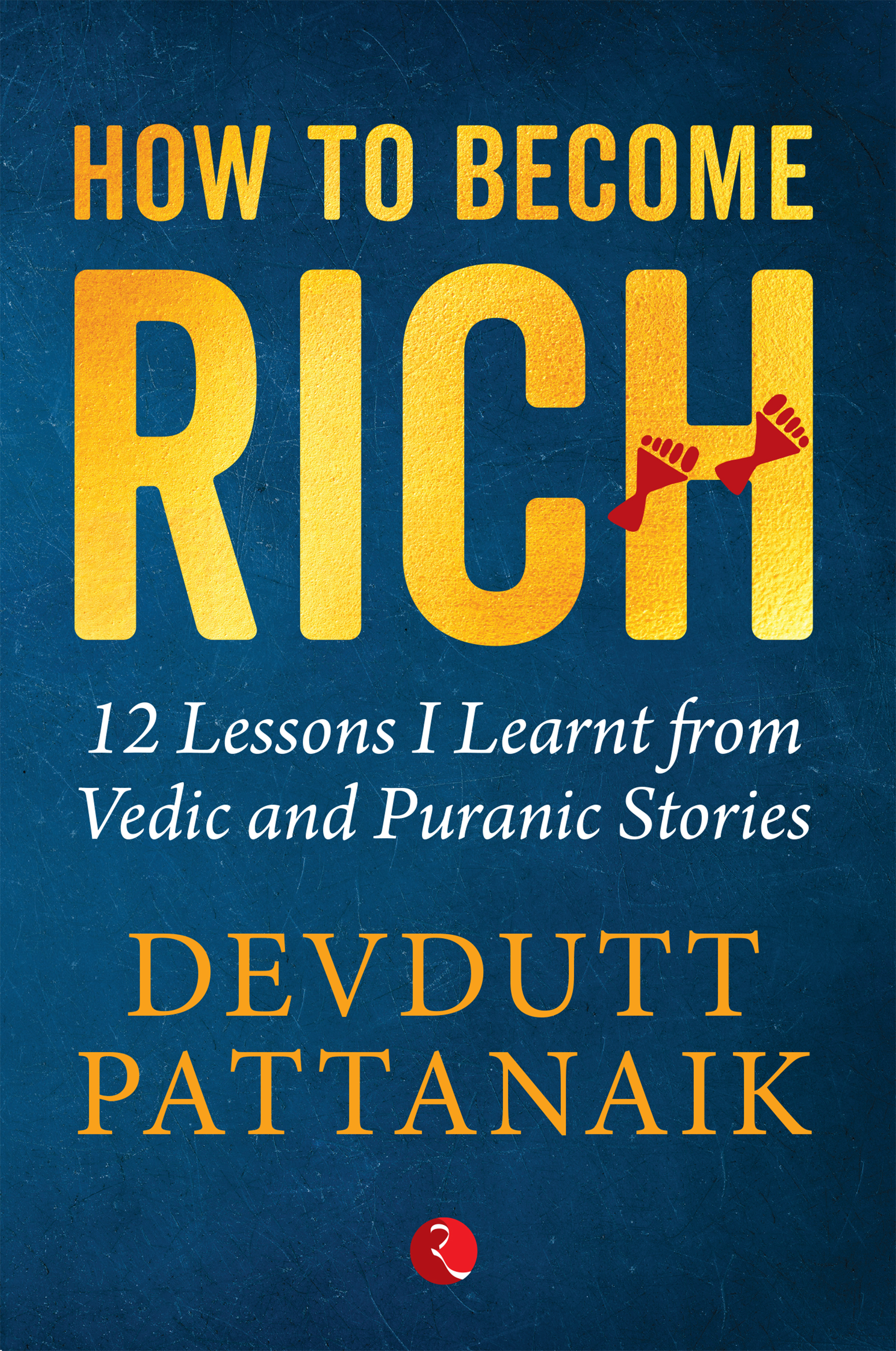How To Become Rich: An Excerpt

Preparing your home to invite Lakshmi, this Diwali? Devdutt Pattanaik’s How To Become Rich can be your handbook to impress the goddess of wealth and lure her to grace your home with her blessings. A simple retelling of the stories of Lakshmi found in the Vedas and Puranas, the book deftly explains what Hinduism says about economics at a personal and social level. Here’s an excerpt from the book:

What the Vedas and Puranas Taught Me about Money and Commerce
In India, we worship Lakshmi, the goddess of wealth. She is referred to a lot in the Vedas and Puranas. The Vedas are over 3,000 years old, while the Puranas are nearly 2,000 years old—together, the Vedas and Puranas represent a key source of Hindu knowledge. In the Vedas, Lakshmi is called Shri. In Vedic hymns, she is invoked for grain, gold, cows, horse children, fame and glory. In the Puranas, she is the elusive goddess––sought by Devas, Asuras, Yakshas and Rakshasas––who chooses Vishnu as her husband. Her arrival is considered good and auspicious (shubh, mangala) because when she comes we feel we are in paradise, or Swarga. Her departure is considered bad and inauspicious (ashubh, amangala), because when she leaves we slip into poverty, get trapped in debt, and feel like we are in hell, or Naraka, with no hope of escape.

In temples, the gods are bedecked with gold and jewels. In rituals, we use pots overflowing with food to represent abundance. During festivals, we clean our house and decorate the threshold with flowers, paint Lakshmi’s footprints pointing indoors and light lamps at dusk so that she knows exactly where to come. Clearly, she is a much-desired goddess.
Yet, many relatives and friends, even gurus, tell us not to be ‘money-minded’, or that it is wrong to equate Lakshmi with money because Lakshmi is spiritual while money is material. That if Lakshmi will come, then Saraswati, the goddess of learning, will go. The word ‘commercial’ is often used as an insult. Entrepreneurs, businessmen, and traders are viewed with suspicion and considered thieves. Why?
Why this mockery of money (Lakshmi-ninda)? Why are we driving Lakshmi out of India instead of inviting her lovingly into our lives?
I realized that people were hiding something from Indian scriptures or overlooking some ideas, hereby ignoring them. This led me to relook at the stories of Lakshmi found in the Vedas and Puranas. Over time, I realized that Hinduism says a lot about economics (artha-shastra) at a personal level (sva-dharma), as well as at the social level (raj-dharma).
It dawned on me that we should look beyond literal meaning (shabda-artha) at metaphorical meaning (bhava-artha). When we say India was the land of the golden sparrow (sone ki chidiya), we don’t mean India actually had birds whose wings were made of gold; we mean India, in ancient times, was very rich, exporting textiles and spices to places as far as Rome and importing gold.
Symbols are like pots and meaning is like water. If we look for meanings within the symbols of the Vedas and Puranas, we can learn many things about money and how to become rich:
• Lakshmi is considered a restless goddess (chanchal), which means wealth brings value only when it is circulated, not locked up. Those who grab and lock her up, get profit (labh) without happiness, not prosperity with happiness (shubh-labh).
• The concept of freedom (moksha) is related to repayment of debt (hrinn).
• Exchange (yagna), the fundamental concept of economics, is the cornerstone of dharma (governance).
• Charity that makes the receiver dependent (bhiksha) is frowned upon, whereas charity that makes the receiver independent (daan) is advocated.
• Wealth is to be seen as a fruit (phala), to be enjoyed now, and a seed (bija) to be invested for the future.
• Prithu was the first king of the earth who saw the earth as a cow (go-mata) and understood kingship as being the earth-cow’s caretaker (go-pala). That is why the earth is called Prithvi. Giving away cows (go-daan) implies creating means of livelihood out of the earth. Consequently, the killing of cows (gohatya) equals destroying the means of livelihood by destroying earth.
• Lakshmi (wealth) and Saraswati (knowledge) argue until we discover Vidya-Lakshmi (knowledge of circulating wealth).

**********
We wish all our readers a prosperous Diwali!
You can get the title here.

